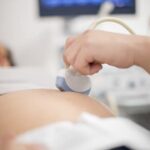Pregnancy is a crucial time for both the mother and the developing baby, making it essential to focus on maintaining a healthy diet. The best nutrition diet for pregnancy plays a vital role in supporting the well-being of both the mother and her growing baby. From ensuring proper growth and development to promoting overall health, a well-balanced diet during pregnancy is of utmost importance.
During pregnancy, a woman’s body undergoes numerous changes that require increased nutrients to support the healthy development of the baby. In this article, we will explore the key components of a nutritionally balanced diet for pregnant women, including nutrient-rich foods, essential vitamins and minerals, the importance of protein, and the benefits of essential fatty acids. We will also provide tips for managing pregnancy cravings and aversions, as well as highlight the significance of staying hydrated throughout pregnancy.
By understanding the critical role that nutrition plays during pregnancy, expectant mothers can make informed choices about their diet to ensure optimal health for themselves and their babies. Whether you are looking to create a personalized meal plan or seeking guidance from a healthcare professional, this comprehensive guide aims to provide valuable insights into achieving the best nutrition diet for a healthy pregnancy.
Nutrient-Rich Foods for a Healthy Pregnancy Diet
During pregnancy, it is essential for women to consume a nutrient-rich diet to support both their own health and the growth and development of their baby. Incorporating a variety of nutrient-dense foods into your daily meals can provide the necessary vitamins, minerals, and macronutrients needed during this crucial time. Here are some examples of nutrient-rich foods that can be beneficial for a healthy pregnancy diet:
Key Nutrient-Rich Foods for Pregnancy
- Leafy green vegetables such as spinach, kale, and Swiss chard
- Fruits like oranges, berries, and mangoes
- Lean protein sources including poultry, fish, tofu, and beans
- Whole grains like quinoa, brown rice, and oats
- Dairy products such as milk, yogurt, and cheese
- Nuts and seeds like almonds, walnuts, chia seeds, and flaxseeds
In addition to these foods, it’s important to also incorporate adequate amounts of key vitamins and minerals into your diet during pregnancy. This includes folate, iron, calcium, vitamin D, and omega-3 fatty acids. These nutrients play vital roles in supporting the healthy development of the fetus and can help prevent potential complications during pregnancy.
By focusing on consuming a wide variety of these nutrient-rich foods on a daily basis, expecting mothers can ensure that they are providing their bodies with the best nutrition diet for pregnancy. It’s important to consult with a healthcare professional or registered dietitian to personalize your nutrition plan based on individual needs and any specific dietary restrictions or concerns.
Key Vitamins and Minerals for Pregnant Women
During pregnancy, it is crucial for women to consume a variety of essential vitamins and minerals to support the health and development of both the mother and the baby. Here are some key nutrients that pregnant women should include in their diet:
- Folate: Also known as folic acid, this B vitamin is crucial for preventing neural tube defects and promoting healthy brain development in the baby. Good sources of folate include leafy green vegetables, citrus fruits, beans, and fortified cereals.
- Iron: Pregnant women need more iron to support the increase in blood volume and to prevent anemia. Iron-rich foods include lean meats, poultry, fish, lentils, and iron-fortified cereals.
- Calcium: Calcium is important for developing strong bones and teeth in the baby. Good sources of calcium include milk, yogurt, cheese, fortified plant-based milk alternatives, and leafy green vegetables.
In addition to these key nutrients, pregnant women should also ensure they are getting adequate amounts of vitamin D, vitamin C, zinc, and other important minerals to support their overall health during pregnancy. It’s important to incorporate a variety of nutrient-dense foods into the diet to ensure that all nutritional needs are met.
Consulting with a healthcare professional or registered dietitian can help pregnant women create a personalized nutrition plan that includes the specific vitamins and minerals they may need based on their individual health status and dietary preferences. By prioritizing nutrient-rich foods and proper supplementation if needed, pregnant women can support a healthy pregnancy for themselves and their babies.
By making conscious choices about nutrition during pregnancy and focusing on consuming foods rich in essential vitamins and minerals such as folate, iron, calcium among others is essential for meeting both maternal needs as well as promoting optimal fetal development.
The Role of Protein in Pregnancy Nutrition
Protein is an essential component of a healthy pregnancy diet, as it plays a crucial role in the growth and development of the fetus. It is recommended that pregnant women consume an additional 25 grams of protein per day to support the rapid growth of the baby and to maintain their own health. Including high-quality sources of protein in your diet can help ensure that you are meeting your daily requirements for this important nutrient.
Best Sources of Protein for Pregnant Women
One of the best sources of protein for pregnant women is lean meat, such as chicken, turkey, and beef. These meats provide a complete source of protein, along with essential vitamins and minerals like iron and B vitamins. Seafood is also an excellent source of protein, as well as omega-3 fatty acids which are beneficial for brain development in the fetus.
Plant-Based Protein Options
For those following a vegetarian or vegan diet, there are plenty of plant-based sources of protein that are suitable for pregnant women. Legumes such as beans, lentils, and chickpeas are rich in protein and fiber, making them an ideal addition to any pregnancy diet. Tofu and tempeh are also good sources of plant-based protein that can be incorporated into meals to ensure adequate protein intake.
How Much Protein Do Pregnant Women Need?
Pregnant women should aim to include at least 75-100 grams of high-quality protein in their daily diet. This can be achieved by incorporating a variety of animal and plant-based protein sources into meals and snacks throughout the day.
A healthcare professional specializing in prenatal nutrition can help determine specific protein needs based on individual factors such as age, weight, and activity level. Whether from animal or plant-based sources, getting enough protein is crucial for supporting the health and development of both mom and baby during pregnancy.
Essential Fatty Acids and Their Benefits for Mom and Baby
During pregnancy, it is essential to include a sufficient amount of essential fatty acids in your diet to support the development of the baby and ensure the overall health of both the mother and the child. Essential fatty acids, such as omega-3 and omega-6, play a crucial role in brain development, eye development, and immune system function in the growing fetus.
In addition to their benefits for the baby, these fatty acids also support the overall health of the mother during pregnancy.
Omega-3 Fatty Acids
One of the most well-known essential fatty acids is omega-3, which is commonly found in fatty fish like salmon, mackerel, and sardines. Omega-3 fatty acids are important for the development of the baby’s brain and eyes. They also have anti-inflammatory properties that can benefit the mother by reducing inflammation and supporting cardiovascular health during pregnancy.
Omega-6 Fatty Acids
Omega-6 fatty acids are another essential nutrient that plays a role in supporting healthy pregnancy. Sources of omega-6 fatty acids include nuts, seeds, and vegetable oils. These fatty acids are necessary for fetal brain development and growth. However, it is important to maintain a balance between omega-6 and omega-3 intake, as an excessive amount of omega-6 can lead to inflammation.
Incorporating foods rich in these essential fatty acids into a pregnant woman’s diet is crucial for ensuring the optimal development of her baby while also supporting her own health during this critical time. It is recommended that pregnant women consult with their healthcare professional to determine their individual needs and receive personalized advice on incorporating these important nutrients into their diet plan.
Foods to Avoid During Pregnancy
During pregnancy, it is essential to be mindful of the foods that should be avoided in order to ensure the health and safety of both the mother and the baby. Certain foods can pose a risk of foodborne illness or contain harmful substances that may negatively impact pregnancy. It is important for pregnant women to educate themselves about these potential risks and make informed choices when it comes to their diet.
Some of the foods that should be avoided during pregnancy include unpasteurized dairy products, such as soft cheeses and raw milk. These products have an increased risk of containing harmful bacteria such as listeria, which can lead to serious complications for pregnant women and their unborn babies. Additionally, it is recommended to avoid raw or undercooked meat, poultry, seafood, and eggs due to the potential presence of harmful bacteria or parasites.
Another category of foods to steer clear of during pregnancy is seafood high in mercury, such as shark, swordfish, king mackerel, and tilefish. Mercury consumption during pregnancy has been linked to developmental delays and brain damage in babies. Instead, pregnant women are advised to opt for low-mercury fish such as salmon, trout, and sardines.
In addition to these specific food items, it is also important for pregnant women to avoid excessive caffeine intake, alcohol consumption, and certain herbal teas or supplements that have not been deemed safe for pregnancy. By being conscious of what they eat and making informed choices about their diet, expectant mothers can help optimize their health and that of their developing baby.
Sample Meal Plan for a Nutritionally Balanced Pregnancy Diet
One of the most important aspects of a healthy pregnancy is maintaining a well-balanced diet. A nutritionally balanced pregnancy diet can provide essential nutrients for both the mother and the baby, contributing to overall health and well-being. It is crucial to consume nutrient-rich foods that are high in vitamins, minerals, protein, and essential fatty acids. Additionally, managing pregnancy cravings and staying hydrated are also important factors to consider when creating a meal plan.
A well-rounded pregnancy diet should include a variety of nutrient-dense foods such as fruits, vegetables, whole grains, lean proteins, and healthy fats. These foods provide essential vitamins and minerals that support the developing baby’s growth and help maintain the mother’s overall health during pregnancy. Key nutrients such as folic acid, iron, calcium, and omega-3 fatty acids play a vital role in fetal development and can be obtained through careful food choices.
| Meal | Food Choices |
|---|---|
| Breakfast | Whole grain toast with avocado spread and scrambled eggs; Fresh orange juice |
| Lunch | Spinach salad with grilled chicken breast, cherry tomatoes, cucumbers, and balsamic vinaigrette; Quinoa pilaf |
| Dinner | Baked salmon with steamed asparagus; Brown rice; Mixed berry salad with Greek yogurt |
Remember to consult with a healthcare professional for personalized nutrition advice that takes into consideration individual dietary needs and any existing medical conditions. By following a nutritionally balanced pregnancy diet that includes a variety of nutrient-rich foods, pregnant women can better support their own health as well as the healthy development of their growing baby.
Tips for Managing Pregnancy Cravings and Aversions
Pregnancy cravings and aversions are a common aspect of pregnancy that many women experience. It is important to manage these cravings and aversions in a way that supports the overall health of both the mother and the baby. When it comes to the best nutrition diet for pregnancy, it is essential to find a balance between giving in to cravings and making healthy food choices.
One tip for managing pregnancy cravings is to have a variety of healthy snacks readily available. This can help prevent overindulging in less healthy options when those intense cravings hit. Opt for nutrient-dense snacks such as nuts, yogurt, or fruit to satisfy those cravings while still providing essential vitamins and minerals.
Another helpful strategy is to incorporate a wide range of flavors into your meals. Sometimes pregnancy can heighten the senses, leading to food aversions based on smell or taste. Experimenting with different herbs, spices, and sauces can help make nutrient-rich foods more appealing during this time.
Furthermore, seeking support from a healthcare professional or nutritionist can be beneficial when managing pregnancy cravings and aversions. They can provide personalized advice and guidance on how to navigate these challenges while ensuring that both the mother and baby are getting the necessary nutrients for a healthy pregnancy.
| Tips for Managing Pregnancy Cravings | Benefits |
|---|---|
| Have healthy snacks readily available | Prevents overindulging in less healthy options |
| Incorporate a wide range of flavors into meals | Makes nutrient-rich foods more appealing |
| Seek support from healthcare professional or nutritionist | Receive personalized advice for managing cravings and aversions |
Hydration and the Importance of Drinking Water During Pregnancy
Staying properly hydrated during pregnancy is essential for both the mother and the developing baby. Water plays a crucial role in maintaining the body’s functions, especially during pregnancy when the body’s demands for water increase. Dehydration can lead to serious complications such as urinary tract infections, preterm labor, and low amniotic fluid levels. It is therefore important for pregnant women to prioritize their hydration and ensure they are consuming an adequate amount of water daily.
The general recommendation for pregnant women is to drink at least 8-10 glasses of water per day. However, individual needs may vary depending on factors such as climate, physical activity level, and overall health. It is important for pregnant women to listen to their bodies and drink water whenever they feel thirsty. Additionally, consuming other fluids such as herbal teas and diluted fruit juices can contribute to overall hydration.
In addition to keeping the body hydrated, water also plays a key role in preventing constipation, which is a common issue during pregnancy. Proper hydration can help soften stool and prevent discomfort. It also aids in reducing swelling, regulating body temperature, and supporting the transport of nutrients throughout the body. Overall, maintaining optimal hydration through adequate water intake is a simple yet crucial aspect of the best nutrition diet for pregnancy.
Consulting With a Healthcare Professional for Personalized Nutrition Advice
In conclusion, maintaining proper nutrition during pregnancy is crucial for the health and development of both the mother and the baby. By consuming a balanced diet that includes nutrient-rich foods, key vitamins and minerals, adequate protein, and essential fatty acids, pregnant women can support their own health as well as their growing baby’s needs. It is important to avoid certain foods that may pose a risk during pregnancy and to manage cravings and aversions in a healthy way.
Additionally, staying hydrated by drinking plenty of water is essential for overall well-being during pregnancy. It is recommended for pregnant women to consult with a healthcare professional to receive personalized nutrition advice tailored to their individual needs. Whether it’s creating a meal plan, addressing specific dietary concerns, or managing any discomfort related to food intake, seeking guidance from a healthcare provider with expertise in prenatal nutrition will ensure the best possible outcome for both mother and baby.
At the end of the day, following the best nutrition diet for pregnancy not only supports a healthy pregnancy but also lays the groundwork for a healthy start in life for the newborn. By prioritizing good nutrition, expecting mothers can positively impact their own health during and after pregnancy while providing their little one with optimal growth and development from the very start.
Frequently Asked Questions
What Is the Healthiest Diet for a Pregnant Woman?
The healthiest diet for a pregnant woman is one that includes a variety of nutrient-dense foods such as fruits, vegetables, whole grains, lean proteins, and healthy fats. It’s important for pregnant women to get enough folate, iron, calcium, and other essential nutrients to support the growth and development of the baby.
What Is the Best Diet to Get Your Body Ready for Pregnancy?
The best diet to get your body ready for pregnancy is one that is balanced, with a focus on nutritious foods like fruits, vegetables, whole grains, and lean proteins. Eating a variety of nutrient-dense foods can help ensure that your body has the necessary nutrients to support a healthy pregnancy.
Which Meal Is Best for a Pregnant Woman to Eat?
The best meal for a pregnant woman to eat is one that includes a balance of carbohydrates, proteins, and fats. A meal with lean protein sources like chicken or fish, healthy fats like avocado or nuts, and complex carbohydrates like quinoa or sweet potatoes can provide the necessary nutrients for both the mother and the developing baby.
It’s also important for pregnant women to stay hydrated and incorporate plenty of fruits and vegetables into their meals.

Welcome to my fertility blog. This is a space where I will be sharing my experiences as I navigate through the world of fertility treatments, as well as provide information and resources about fertility and pregnancy.





